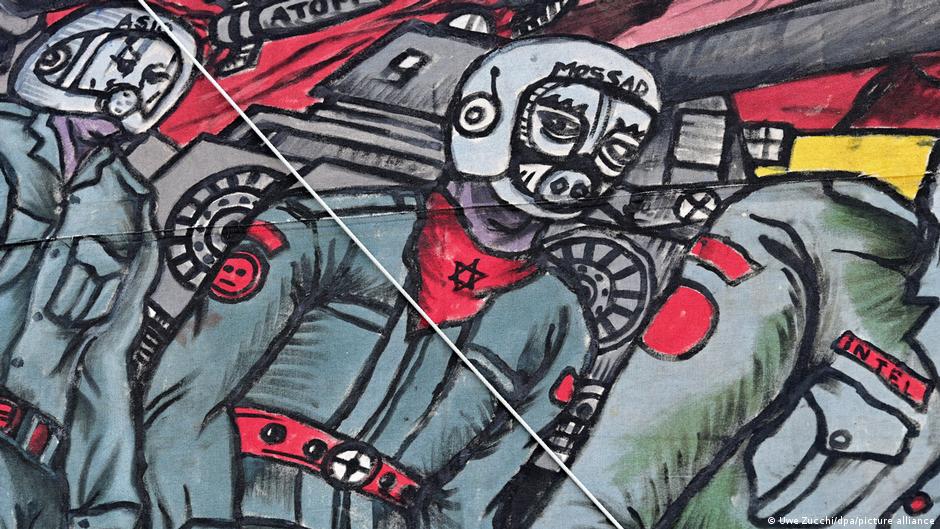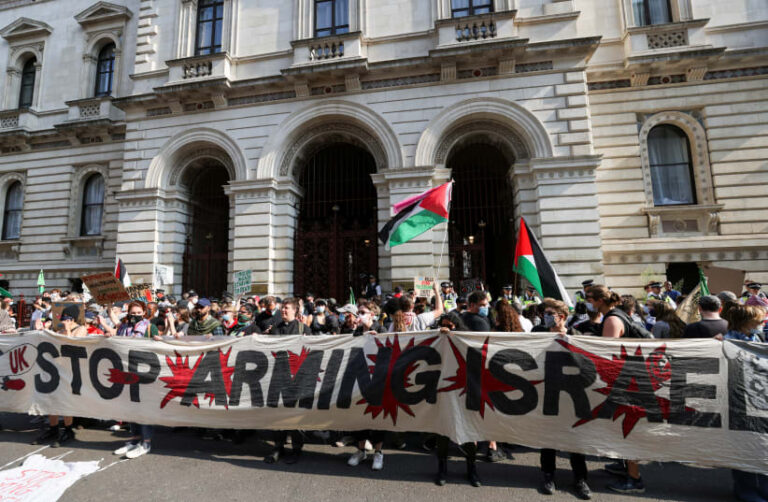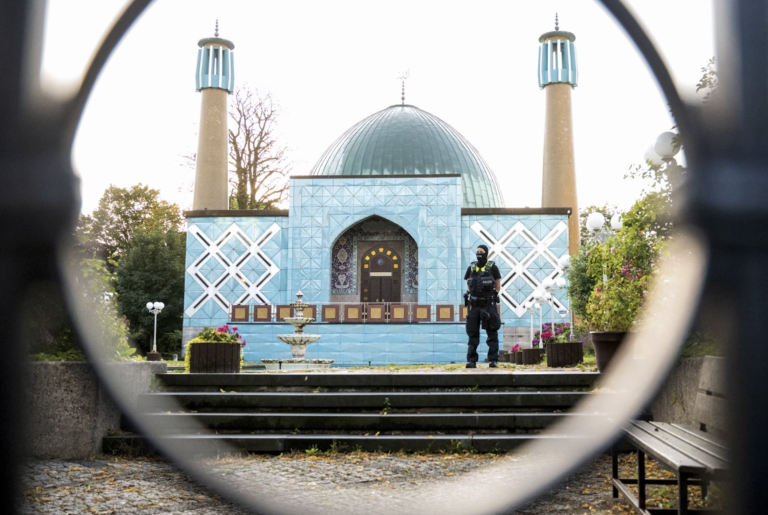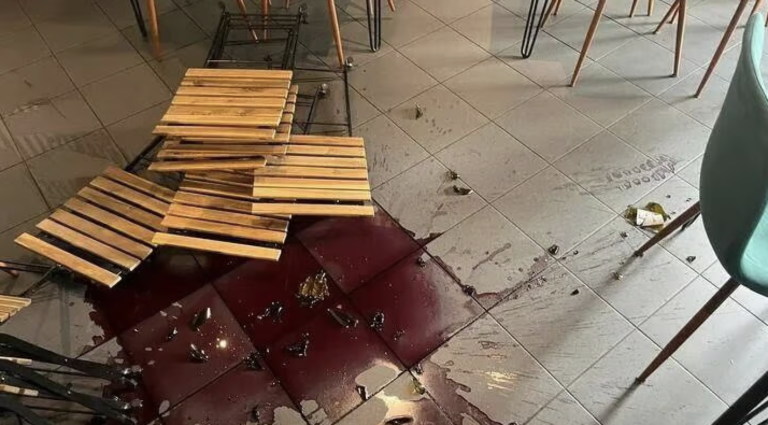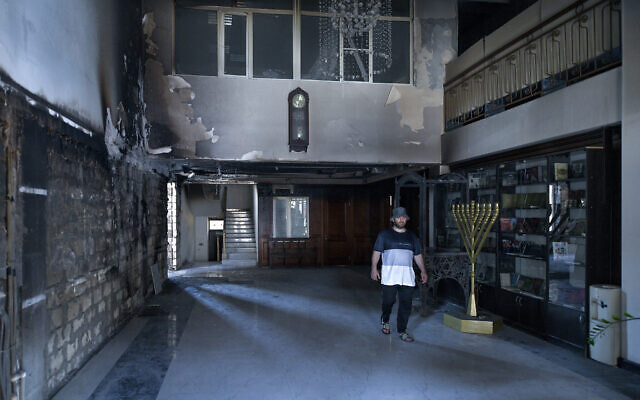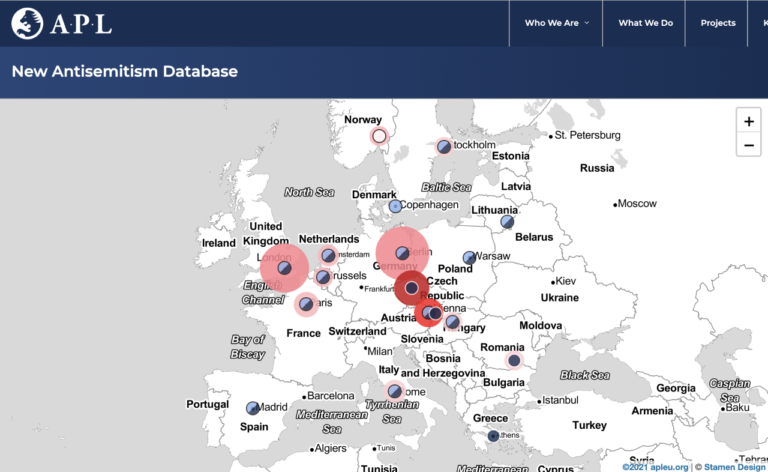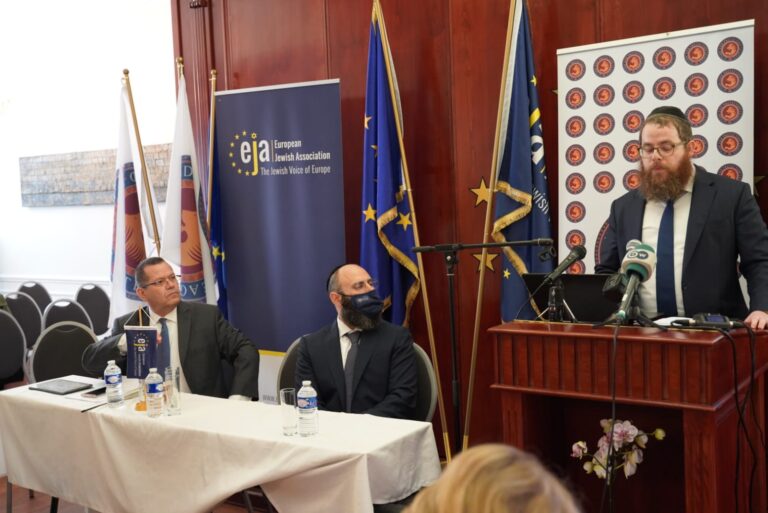After first covering up, an antisemitic continuous mural was taken down at the Documenta international contemporary art exhibition in Kassel, Germany.
On Tuesday evening, the Documenta international contemporary art exhibition that takes place in Kassel, Germany, took down the continuous mural “People’s Justice” by the Indonesian art collective Taring Padi, reports the Deutsche Welle.
The work, originally exhibited in 2002 in Australia, features a soldier-like figure depicted as a pig wearing a scarf with a Star of David and a helmet bearing the word „Mossad” (the name of Israel’s national intelligence agency). Other figures are also clearly antisemitic in nature. A figure, wearing a black hat with a runic Nazi „SS” insignia, has sidelocks — like those associated with Orthodox Jews.
In a statement, Germany’s State Minister for Culture and the Media Claudia Roth said the removal of the artwork was „overdue” and “is only a first step … more must follow.” She questioned “how it was possible for this mural with antisemitic figurative elements to be installed.”
“Antisemitic depictions must have no place in Germany, not even in an art show with a global scope,” said Documenta Director Sabine Schormann in a statement. Meanwhile, according to media reports, the Association of Jewish Communities in the State of Lower Saxony has demanded that exhibition director Schormann resign from her position.
Outrage over the mural quickly followed the Saturday opening of the exhibition. On Monday, it was concealed with black cloth and an explanatory statement. This, however, was deemed unacceptable by Jewish community groups. Schormann joined Documenta curators to “explicitly apologize” for not recognizing the antisemitic depictions before the artwork was installed.
The artists of the Indonesian Taring Padi collective apologised for the “hurt caused,” and on Monday said the work was, “not meant to be related in any way to antisemitism.” Instead, it was “part of a campaign against militarism and the violence we experienced during Suharto’s 32-year military dictatorship in Indonesia.”
